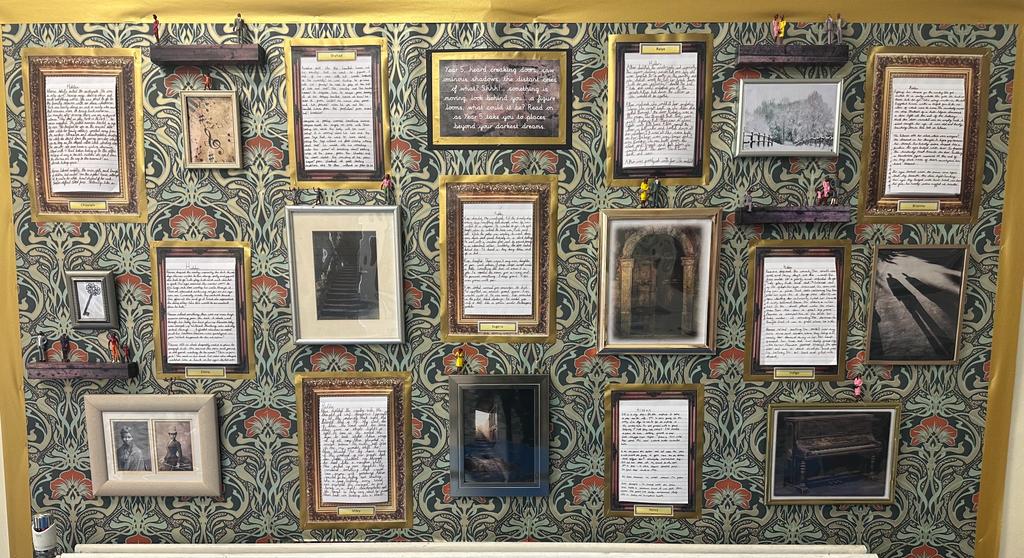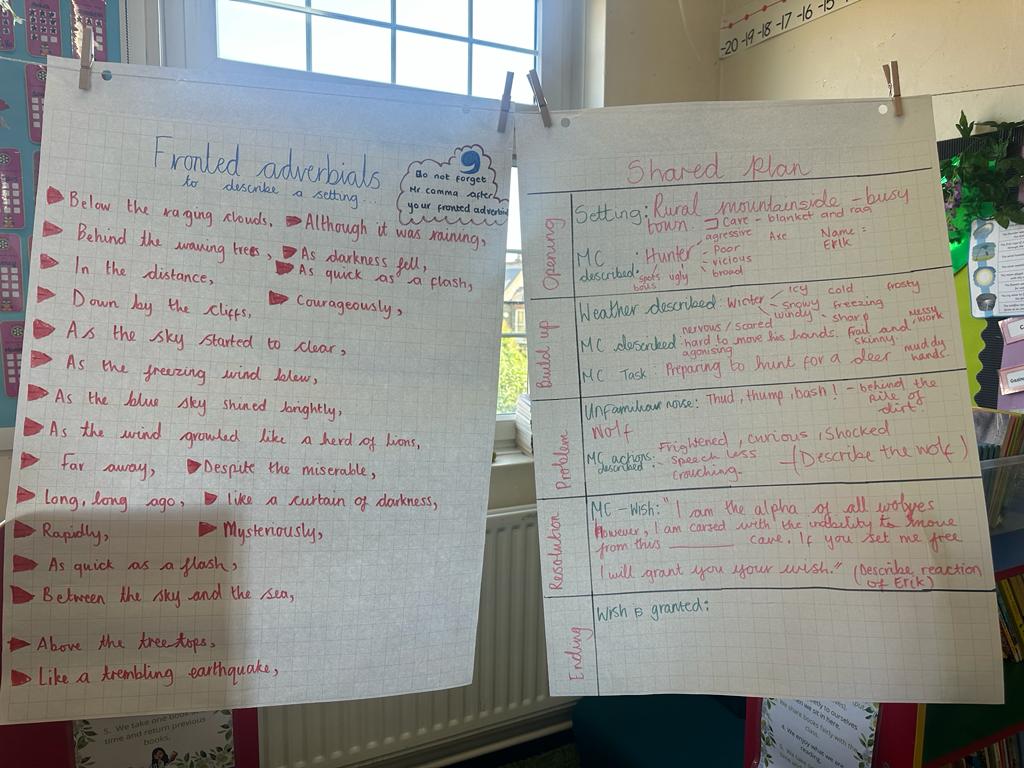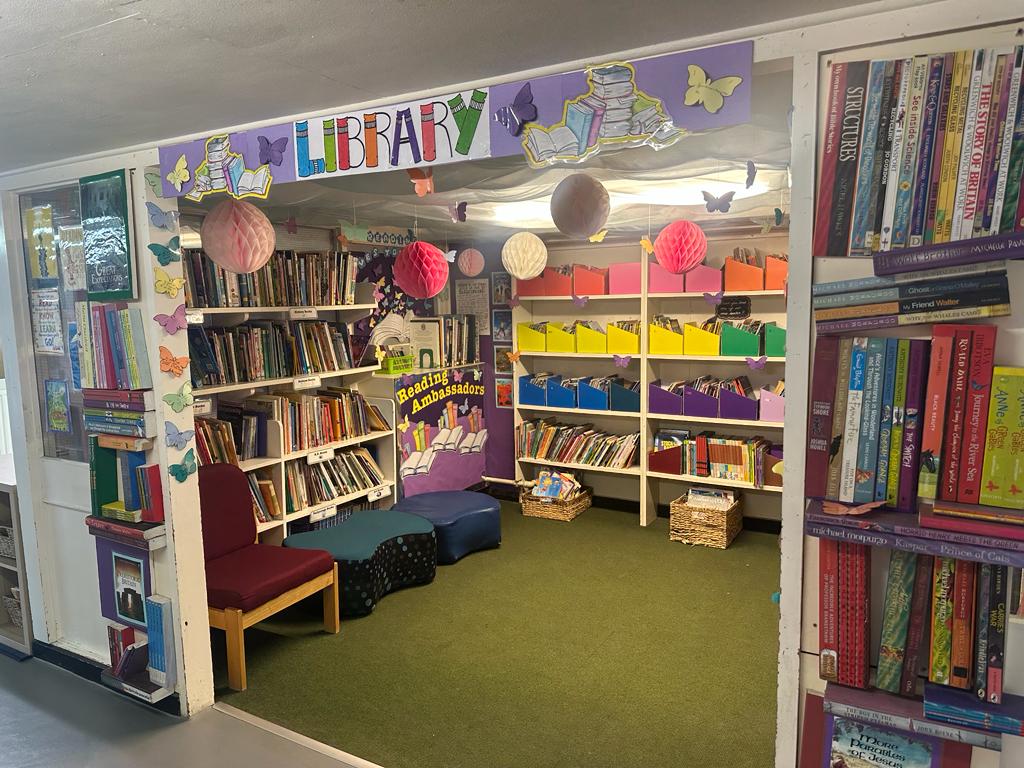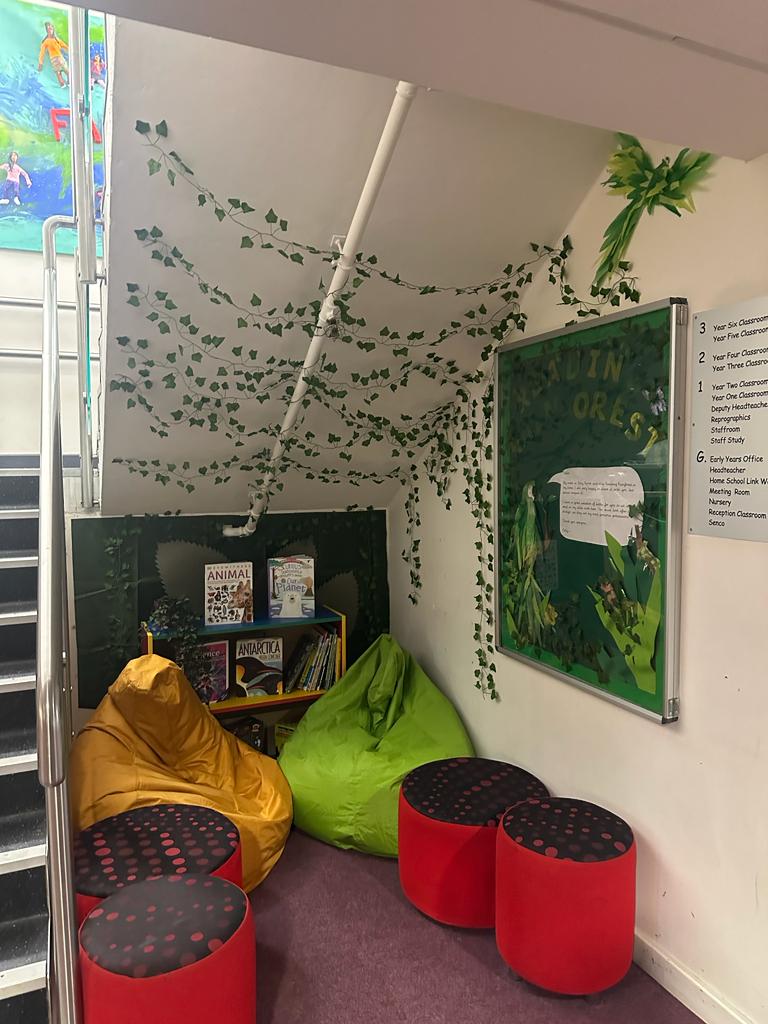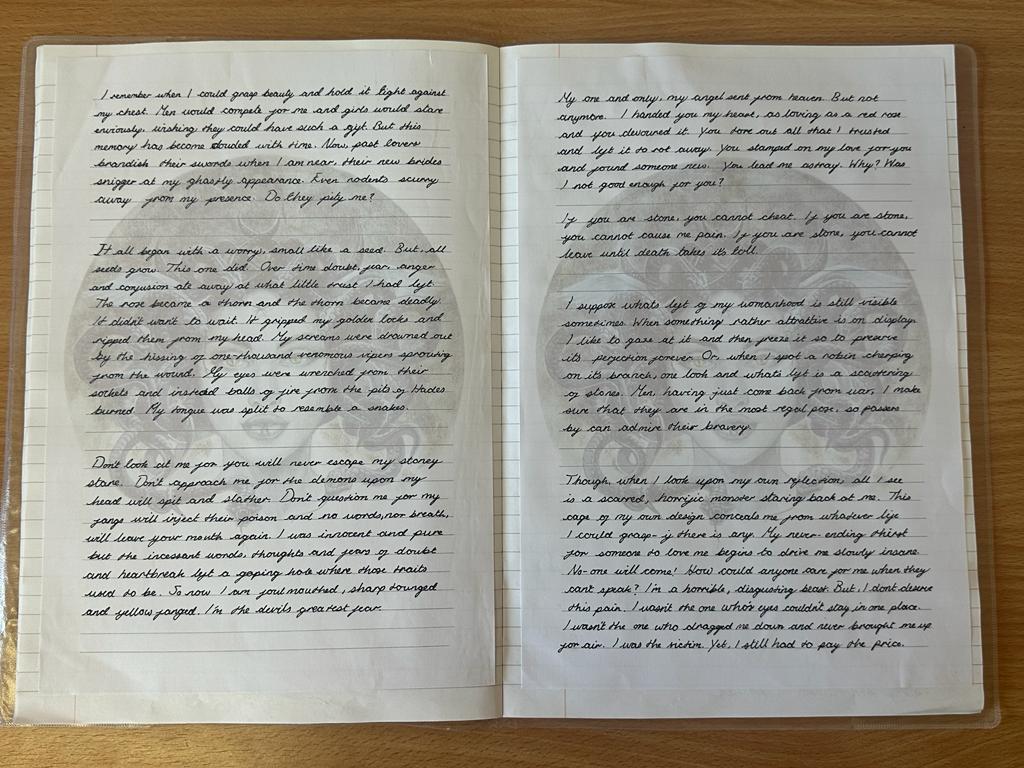In the Koinonia Federation, we strive to ensure that our children will leave our primary phase fully equipped with a secure foundation of literacy skills to enable them to successfully build upon their learning at secondary level and beyond. We aim to ignite a curiosity and passion for written and spoken language.
We understand that reading is crucial to the academic and personal development of children and is a fundamental building block for future successes. Therefore, across the federation, we prioritise reading and work hard to foster a love of reading in our children from their early years, when they are learning to read, through to secondary level and beyond, when they read to learn.
CLICK HERE to view the Koinonia Federation English Map.
For more information on the end of key stage statutory requirements, please click here.
Here are some examples of our English work across the federation:
